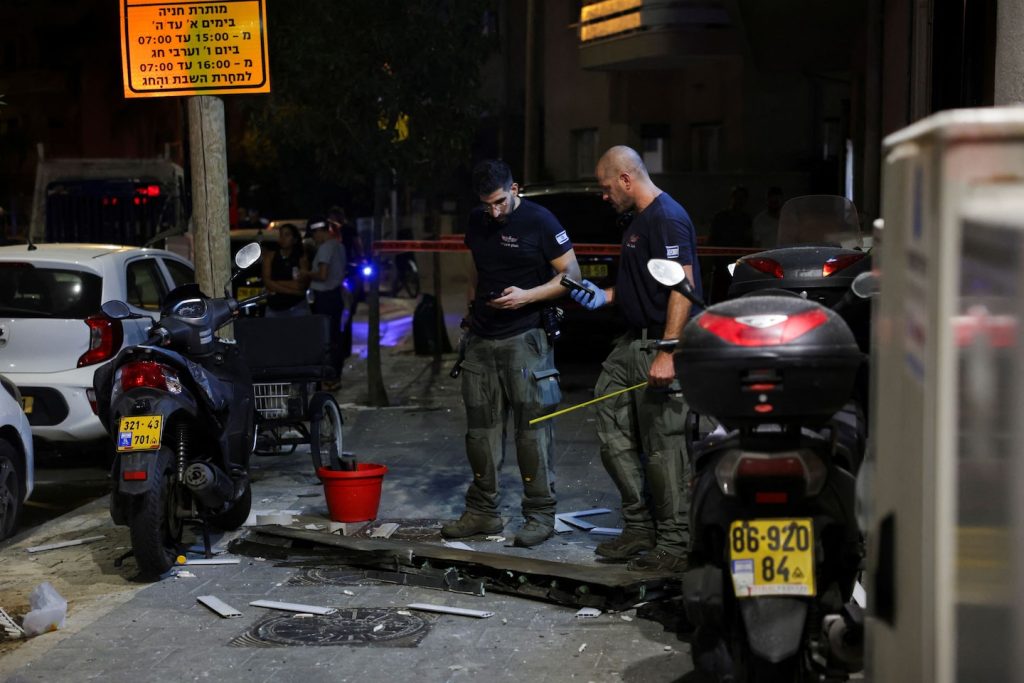The Houthi group, a Yemen-based group that has been attacking merchant ships in the Red Sea since last year, said in a statement on Friday that it had carried out a “high-quality military operation” targeting Tel Aviv using new drones that can evade countermeasures. It said the attack was in retaliation for Israeli “massacres” in Gaza.
Throughout the war in Gaza, the Houthis and other Iranian-backed groups in the region have conducted near-constant attacks aimed at supporting Palestinian militant groups and ending Israeli military offensives. Yemeni groups have previously claimed drone attacks on the southern Israeli city of Eilat, about 1,000 miles from northern Yemen, but a confirmed attack on Tel Aviv would signal growing Houthi capabilities and influence.
The deceased was a 50-year-old man who was found with severe shrapnel injuries in an apartment next to the blast site, said Roe Klein, a paramedic with Magen David Adom, Israel’s national emergency service.
Friday’s unusual attack came hours after the Israeli air force said it had killed two commanders of Lebanon’s Iran-backed group Hezbollah during an Israeli firefight. Hezbollah confirmed the deaths of its two members but did not say whether they were senior operatives.
Israel’s air defenses, equipped primarily for rocket-powered artillery, have struggled for months to identify and eliminate Hezbollah drones, which fly faster and lower and often on non-linear paths in attacks on northern Israel.
Israeli bomb disposal experts and rescue teams were at the scene hours after the blast, and police urged residents not to go near the site or touch “rocket debris that may contain explosives.”
Tel Aviv Mayor Ron Huldai posted on X that the city was on “high alert” after the drone strike and residents were urged to follow emergency instructions. “The war continues, it’s difficult and painful.” He said.
It was not immediately clear whether the drone was targeting a U.S. embassy branch, and U.S. embassy officials in Israel did not respond to a request for comment early Friday.
An Israeli military official, speaking to reporters on condition of anonymity in line with military practice, confirmed that no alarm was sounded when the drone approached and said an initial investigation had pointed to “human error as the interception and defense systems did not activate.” The error may have been related to “identification,” the official added, saying the matter was still under investigation.
The official said the drone was a “large UAV capable of long-distance flight,” referring to an unmanned aerial vehicle. Based on the Houthi rebels’ statement, the military is considering the possibility that the drone may have come from Yemen, and is also investigating its flight path, the official said.
“Our understanding is that the attack is probably not coming from the north,” the official said, downplaying the possibility of an attack from Lebanon but adding that “we are not ruling out any possibility.”
Farim reported from Istanbul and Ables from Seoul. Lior Soroka in Tel Aviv and Suzan Haidamus in Beirut contributed to this report.


